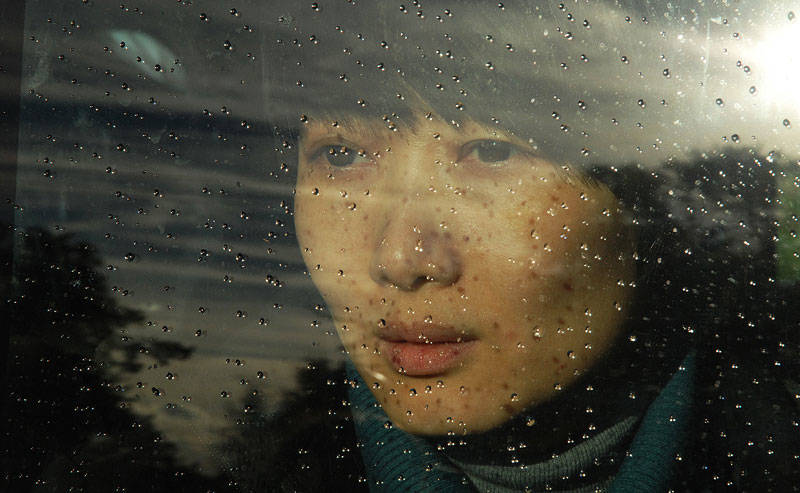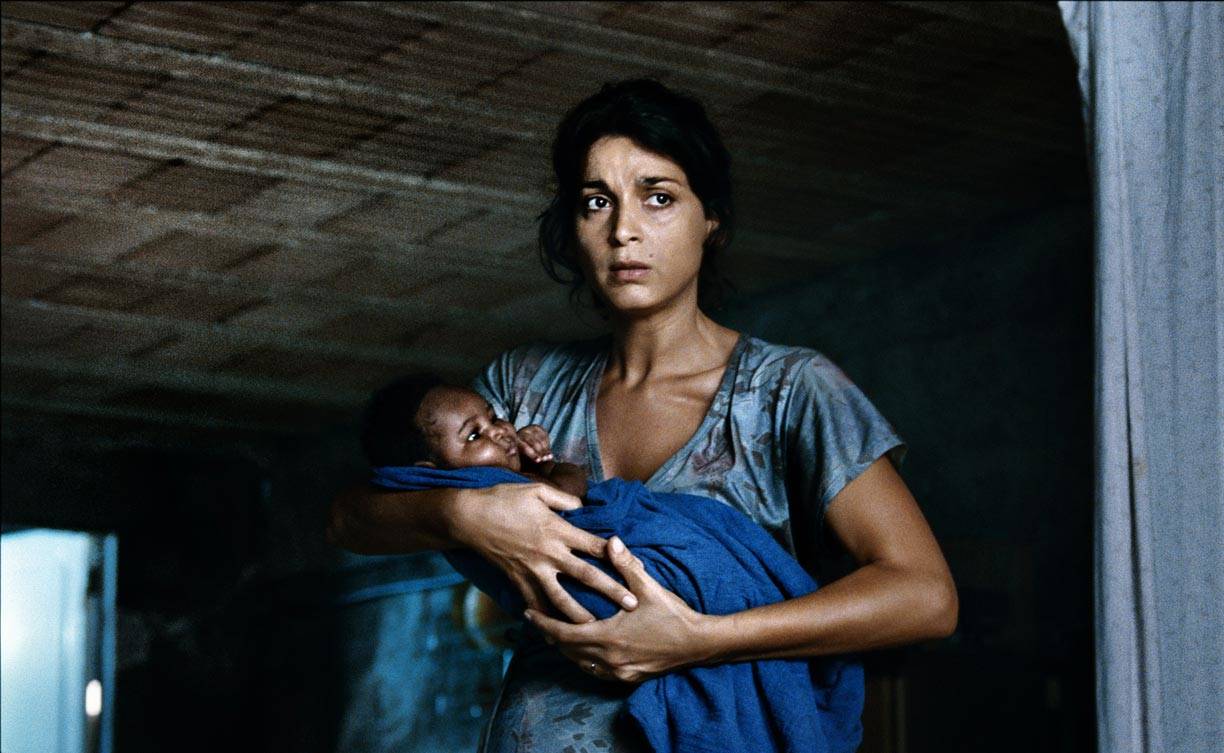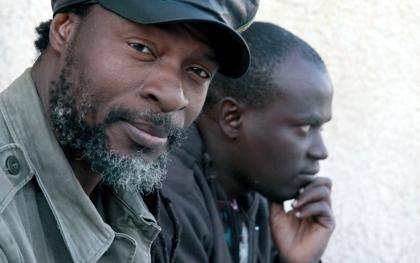Terraferma, Shun Li & the Poet and La-bas. Immigration in Italian Cinema at the Film Society of Lincoln Center's Open Roads
At least 1.500 people are known to have lost their lives attempting to cross the Mediterranean in 2011. Stories of hopeful migrants who try to escape their countries on boats and reach Italian shores are not rare events anymore but every day news. Italian newspapers have articles by title like “A boat carrying as many as 300 terrified migrants from Libya capsized in rough seas off the Italian coast as rescuers, hampered by strong winds, struggled to get to them,” and “Five people were found dead in a rickety boat off Italy’s southernmost tip which was carrying around 60 immigrants, the Italian coast guard, adding that a rescue mission was under way.”
An example, one among many, the report Lives lost in the Mediterranean Sea: who is responsible? presented at the Parliamentary Assembly in March 2012 “focuses on one particularly harrowing case in which a small boat left Tripoli with 72 people on board and after two weeks at sea drifted back to Libya with only nine survivors. No one went to the aid of this boat, despite a distress call logged by the Italian Maritime Rescue Coordination Centre, which pinpointed the boat’s position. There were also a number of alleged direct contacts between the boat in distress and other vessels, including a helicopter that dropped biscuits and water, but never returned, two fishing vessels, both of which refused to provide assistance, and a large military vessel which came into close contact with the boat, but ignored obvious distress signals.”
Back in Libya the nine survivors were released yet they fled the country. None knows what happened to them after that.
This is a specific case but not unique as stories of immigration are not in the news anymore, but are mostly inspiring Italian cinema.
Stories like the ones mentioned above have inspired Terraferma, Emanuele Crialese's fourth film that is playing at Lincoln Center's Open Roads festival on June 13th at 2.15 and 6.15 pm (“Crialese decided to make the film in 2009, after reading the story of an African woman who was one of only five survivors on a crammed boat that spent 21 days drifting at sea without assistance before running aground on Lampedusa”). This dreamy yet hard-hitting social critique is set on a small island off the coast of Sicily that's still untouched by tourism, where people face the challenge of coping with clandestine immigrant who, day after day, try to make the island their first stop in Italy to proceed to the rest of the country where they have family or friends waiting for them. One day, Filippo, a young local boy who lost his father at sea and goes fishing with his grandfather, and Ernesto (the grandpa himself) see a boat of immigrants. Some are so desperate to make it to land that they jump in the water. After having informed the Coast Guard, they pull some out and carry them to shore, thus respecting the law of the sea, none in the water is left to die, and disrespecting the national law that there must be no contact with the illegal migrants and who helps them is guilty of abatement.
Water is symbolically viewed as the source of life, renewal, purification rebirth. In Terraferma water is a dark force that hides even darker human beings who, in the middle of the night, are hidden in the waves and desperately try to make it to shore but they get their hands beaten, as they try to climb up the smallest boat, or pushed by into the depths of the sea. The water hides shoes, toys, all sorts of objects that pollute it but that meant something to their desperate owners who made the ultimate trip to a better life.
Filippo and his grandfather do get in trouble but their situation could even be worse if the authorities were to find out that they have saved a pregnant Ethiopian woman and her son. The family has to live with the difficulty of hiding someone dangerous, and finding a way to get rid of them. The film constantly asks you the question “what would you do?” would you respond to your human instinct to help someone no matter who he is or would you respect the law, a law that is more and more often simply inhuman?
The same questions can be found in another film presented at Open Roads that is centered on immigration: Andrea Segre's Shun Li and the Poet.
After several documentaries on immigration, Segre's first feature is the delicate and insightful story of a Chinese woman who, brought to Italy by a broker who she's slowly paying off while saving money to bring across her son, is sent from her factory job in the outskirts of Rome, to a bar in Chioggia, a small island in the Veneto lagoon, the place where Segre's mother comes from. There she becomes friend with another immigrant, Bepi a fisherman nicknamed The Poet because he enjoys rhyming, who came to Italy decades earlier from Eastern Europe. The two have a special understanding between them but their friendship is not thoroughly appreciated by both Italians and Chinese alike.
In Segre's film, a careful look into the immigrant world, the characters have already made it to Italy yet the better life that they are supposed to find is still far away. Shun Li has no days off, she must continuously work to pay off her debt, she is treated like a possession that is moved around as the broker, or better yet, her owner, prefers. Still, somehow, despite all the unfairness, people can find a special kind of support system.
Water is a character in this film as well, Chioggia is surrounded by it. But instead of being blue
and in movement as the one in Terraferma, it is gray and still yet it brings new life on shore. Bepi is a fisherman as well. “In the spiritual sense, fishermen are those who instruct men in the truths of life, giving them food for the mind, and elevating them out of a merely natural- minded and sensuous state, and into a spiritual state of mind.”
La-bas is another immigration story that was presented at Open Roads. Guido Lombardi's film is the tale of a talented young artist, Yusouf, from Africa who is promised a job by an uncle who already lives in Italy. He ends up in Castel Volturno home to about 20.000 clandestine African immigrants. Here he is witness of the struggles people go through to live day by day, including dealing with the Camorra.
At the beginning of the film Yusouf has never seen the water and asks to please have a look at the sea, again here, the symbol of a new beginning.
The presence of these films shows that within mainstream, commercial film projects, there is a growing interest to focus on social-economic problems that affect an always greater numbers of people. These films focus not only on the traumatic arrival of the migrant but also on the marginalization/exploitation of the migrant once he/she has entered the country, real challenges for today's Italy.




































i-Italy
Facebook
Google+
This work may not be reproduced, in whole or in part, without prior written permission.
Questo lavoro non può essere riprodotto, in tutto o in parte, senza permesso scritto.